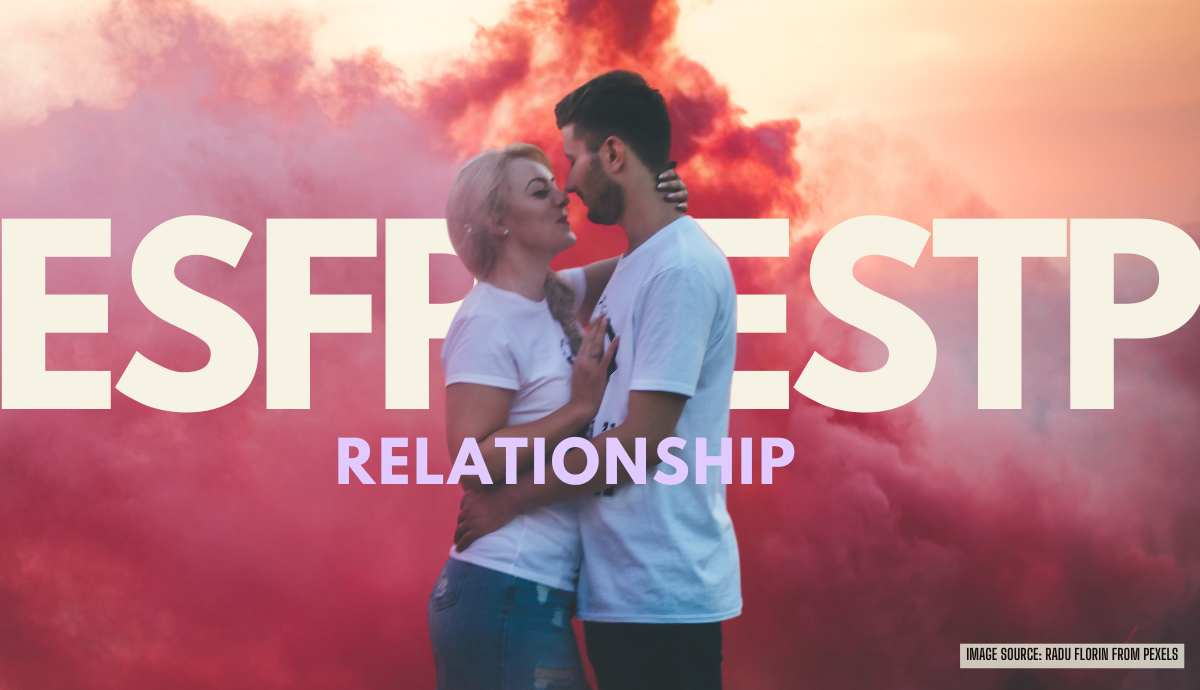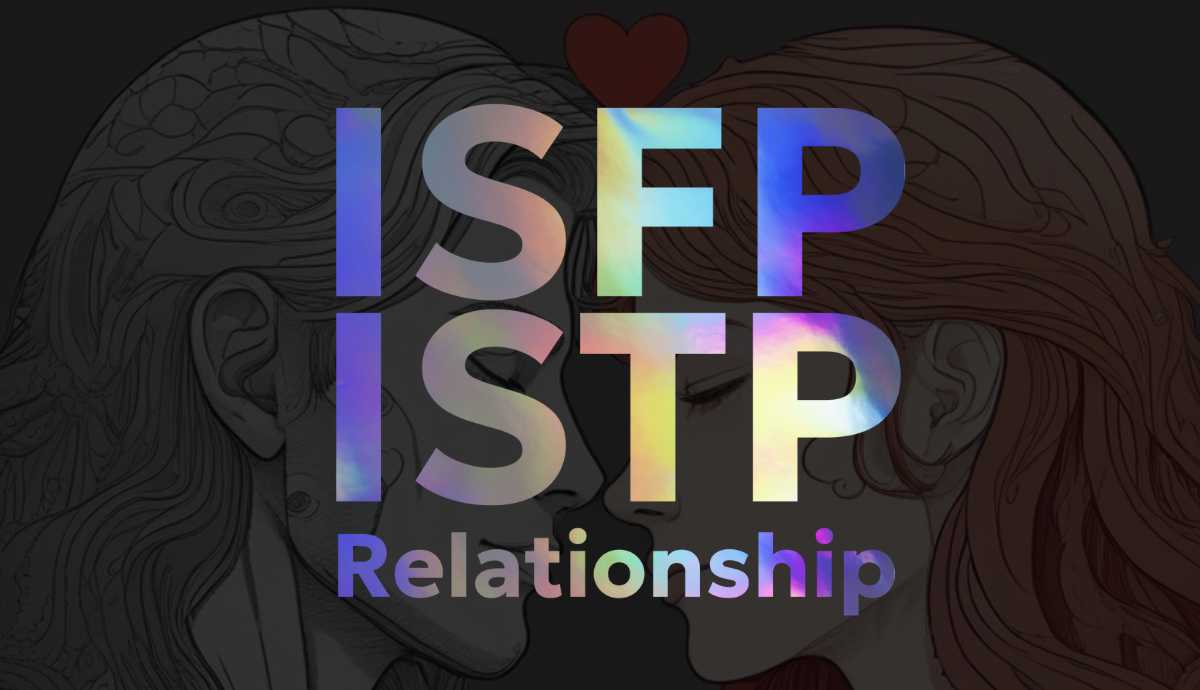While each of the MBTI preferences influences how people approach and respond to conflict, research has shown that the preferences represented by the last two letters in the four-letter MBTI type code have the greatest impact on one’s conflict style. These letters are called the conflict pairs, and they represent the combination of one’s decision-making preference for either Thinking (T) or Feeling (F) and one’s lifestyle preference for either Judging (J) or Perceiving (P).
ISTP
ISTPs are not afraid of conflict and they are not easily intimidated or threatened by confrontation. In most cases, especially in their public lives, ISTPs are not likely to respond to situations emotionally, but rather stoically, with a focus on understanding the issue and gathering information. They are willing to compromise when they can and they take criticism rather well, at least when it’s coming from people they respect.
In the midst of crisis they have the ability to perform decisively and skillfully. They seem to have a high tolerance for stress, but when they reach their limits, they can blow up in heated anger. Those close to them may know this aspect unfortunately because ISTPs can sometimes take their pent up frustration out on loved ones. This is especially true when they feel double-bound or restricted in their relationships. Fortunately, ISTPs tend not to hold on to grudges and are happy to move past the drama.
- Likely cause of conflict: Challenges to trust
- Desired outcome: Defined process or progression
- Deal with emotions by: Excluding them
- Others’ impression: Catalyst of or contributor to conflict
- Satisfied when: The outcome can subsequently be analyzed
ISFP
While ISFPs typically dislike conflict, they are often not in a rush to reach closure as they appreciate the time needed to listen to everyone. They have difficulty with others offering a logical analysis that appears to overlook the possible negative impact on others. For FPs, conflict issues tend to involve something they are passionate about, be it a value or people who are important to them. The amount of time ISFPs spend exploring people’s concerns can be frustrating for TJs, whom they perceive as impatient to move on. Their intention is to have everyone’s opinions, feelings, and values respected. Including others is often more important than the issue. You are naturally sensitive to any conflict around you. Success for you is achieved when you or others create a safe environment to allow an exploration of all viewpoints.
- Likely cause of conflict: Challenges to values
- Desired outcome: Respectful listening
- Deal with emotions by: Accepting them
- Others’ impression: Someone who includes others’ values and concerns
- Satisfied when: There is open exploration
ESFP
ESFPs are likely to be viewed in conflict as people who seek to hear all sides of the story. Others typically see them as being accepting of disparate views and committed to their own values. For FPs, conflict issues tend to involve something they are passionate about, be it a value or people who are important to them. While ESFPs would not typically want to engage in conflict, they accept that it is necessary when they care so much about who or what is involved. Throughout a conflict, ESFPs have a strong need to include the opinions and feelings of everyone. They are naturally sensitive to any conflict around them. Success for for the ESFP is achieved when they or others create a safe environment to allow an exploration of all viewpoints.
- Likely cause of conflict: Challenges to values
- Desired outcome: Respectful listening
- Deal with emotions by: Accepting them
- Others’ impression: Someone who includes others’ values and concerns
- Satisfied when: There is open exploration
ESTP
As ESTPs’ tolerance of conflict situations is higher than that of most people, don’t be surprised if they see conflict as a challenge or as healthy. Remember that for them, the process of addressing the conflict is as important as the outcome. ESTPs’ comfort with exploring means they will be in no rush to reach closure. ESTPs will express feelings only when they are sure everyone present can be trusted. ESTPs may frustrate others with their seemingly ever-changing rules of engagement. They are acutely aware of where the power lies in any situation and will fluctuate between needing to have access to the power and supporting the underdog. Their intention is to ensure the conflict has been explored from all angles.
- Likely cause of conflict: Challenges to trust
- Desired outcome: Defined process or progression
- Deal with emotions by: Excluding them
- Others’ impression: Catalyst of or contributor to conflict
- Satisfied when: The outcome can subsequently be analyzed
ISTJ
They may tend to overlook the emotional content in conflict even though strong emotion does exist. Their engagement can shift from easygoing and agreeable to intense and seemingly angry, all within the same situation. This paradox could be the root of the changeable intensity those with TJ preferences can show—holding back emotion for a time, then having it burst out, albeit for a short period. Success in a conflict is measured not by whether their particular viewpoint prevails, but by the clear identification of a viewpoint as a way forward.
- Likely cause of conflict: Challenges to authority
- Desired outcome: Closure or resolution
- Deal with emotions by: Denying they exist
- Others’ impression: Detached or aggressive adversary
- Satisfied when: Conflict is over
ISFJ
ISFJs typically view conflict as a difficult or negative experience. Their rush to closure is likely motivated by a desire to make sure no one gets hurt rather than an objective assessment that everything is sorted out. It is only after ISFJs are certain everyone’s concerns and feelings have been given attention that they can begin to look at other factors. Once engaged in a conflict, FJs can be intense and emotional and will encourage others to share their feelings and opinions in the hope that this will lead to a resolution. Typically they will equate success in a conflict with the relationships remaining intact and there being no lingering bitterness.
- Likely cause of conflict: Challenges to beliefs
- Desired outcome: Intact relationships
- Deal with emotions by: Including them
- Others’ impression: Seeker of communication and harmony
- Satisfied when: There is no lingering bitterness
ESTJ
For TJs, conflict tends to arise around authority issues. Questioning of hierarchy, reporting lines, seniority, and decision-making roles can be a red flag for them. When they are involved in a conflict, their primary need is for closure or resolution—to have it over and done with. They may tend to overlook the emotional content in conflict even though strong emotion does exist. Their engagement can shift from easygoing and agreeable to intense and seemingly angry, all within the same situation. This paradox could be the root of the changeable intensity those with TJ preferences can show—holding back emotion for a time, then having it burst out, albeit for a short period. Success in a conflict is measured not by whether their particular viewpoint prevails, but by the clear identification of a viewpoint as a way forward.
- Likely cause of conflict: Challenges to authority
- Desired outcome: Closure or resolution
- Deal with emotions by: Denying they exist
- Others’ impression: Detached or aggressive adversary
- Satisfied when: Conflict is over
ESFJ
FJs are likely to be viewed in conflict as needing and seeking harmony. They typically view conflict as a difficult or negative experience. Others typically see them as being warm and caring, and at times uncomfortable with the tension associated with conflict. For FJs, conflict tends to arise when their core beliefs or values are being challenged. Their primary concern during conflict is the well-being of the relationships between those involved. At times this can lead them to ignore signals of conflict in the hope that it will go away or to brush conflict under the rug to avoid dealing with the painful issues that may come up. Their rush to closure is likely motivated by a desire to make sure no one gets hurt rather than an objective assessment that everything is sorted out.
- Likely cause of conflict: Challenges to beliefs
- Desired outcome: Intact relationships
- Deal with emotions by: Including them
- Others’ impression: Seeker of communication and harmony
- Satisfied when: There is no lingering bitterness
INTP
While aware of the emotions involved, they prefer to set these aside so as to allow a healthy and hearty debate. However, this may be done without due regard for others’ feelings, resulting in TPs’ being perceived as a catalyst or creator of conflict. Their attitude toward conflict fluctuates between seeing it as a waste of time and considering it a useful mechanism for working through issues. For them, success in a conflict is about seeking to clarify the situation. As a result, they often subsequently review and analyze matters.
- Likely cause of conflict: Challenges to trust
- Desired outcome: Defined process or progression
- Deal with emotions by: Excluding them
- Others’ impression: Catalyst of or contributor to conflict
- Satisfied when: The outcome can subsequently be analyzed
INTJ
likely to be viewed in conflict as being rational, offering critical commentary and demonstrating a keen ability to make decisions based on the information at hand. Others typically see them as cool-headed, analytical, and clear thinking. For TJs, conflict tends to arise around authority issues. Questioning of hierarchy, reporting lines, seniority, and decision-making roles can be a red flag for them. When they are involved in a conflict, their primary need is for closure or resolution—to have it over and done with.
- Likely cause of conflict: Challenges to authority
- Desired outcome: Closure or resolution
- Deal with emotions by: Denying they exist
- Others’ impression: Detached or aggressive adversary
- Satisfied when: Conflict is over
ENTP
’ENTP’s tolerance of conflict situations is higher than that of most people, don’t be surprised if they see conflict as a challenge or as healthy. They are likely to be viewed in conflict as being critical and prepared to question anything relating to the conflict or the people involved. Others typically see them as being comfortable playing the role of devil’s advocate or championing the underdog. For TPs, conflict tends to arise around issues of trust and personal credibility. Instances that challenge these concepts tend to be at the core of their conflicts. When involved in a conflict, they are driven to find a way to navigate through the issues.
- Likely cause of conflict: Challenges to trust
- Desired outcome: Defined process or progression
- Deal with emotions by: Excluding them
- Others’ impression: Catalyst of or contributor to conflict
- Satisfied when: The outcome can subsequently be analyzed
ENTJ
Most ENTJs believe they are right and may be stubborn when confronting an alternate point of view. All will want a quick resolution, but don’t brush aside important matters solely to move on. Keep in mind that your objectivity will allow all to find a way out of a conflict but may not limit its underlying emotional impact. Encourage everyone to give time to listen to each viewpoint. Don’t interpret succinct responses as being abrupt or disrespectful. Remember that it will be difficult to create an environment in which it is safe to express emotions. ENTJs believe that once a conflict is over, it’s over, so don’t miss opportunities to say what you need to say.
- Likely cause of conflict: Challenges to authority
- Desired outcome: Closure or resolution
- Deal with emotions by: Denying they exist
- Others’ impression: Detached or aggressive adversary
- Satisfied when: Conflict is over
INFP
In conflict situations, INFPs pay most attention to who is involved and on the needs being expressed and the values at stake. They tend to accept and appreciate the differences between people and the positions they hold. INFPs communicate in a tactful manner and are prepared to give and take when settling differences. Like others with a preference for Perceiving they tend to seek clarification and progress rather than an immediate solution. They focus on the present when describing the conflict and concern themselves primarily with the input from all perspectives. They experience satisfaction once the conflict is being addressed.
- Likely cause of conflict: Challenges to values
- Desired outcome: Respectful listening
- Deal with emotions by: Accepting them
- Others’ impression: Someone who includes others’ values and concerns
- Satisfied when: There is open exploration
INFJ
Their primary concern during conflict is the well-being of the relationships between those involved. At times this can lead them to ignore signals of conflict in the hope that it will go away or to brush conflict under the rug to avoid dealing with the painful issues that may come up. Once engaged in a conflict, FJs can be intense and emotional and will encourage others to share their feelings and opinions in the hope that this will lead to a resolution. Typically they will equate success in a conflict with the relationships remaining intact and there being no lingering bitterness.
- Likely cause of conflict: Challenges to beliefs
- Desired outcome: Intact relationships
- Deal with emotions by: Including them
- Others’ impression: Seeker of communication and harmony
- Satisfied when: There is no lingering bitterness
ENFP
In most situations, you endeavor to create a warm and caring environment in which everyone can thrive. Conflict is no different. You want everyone to have an opportunity to have his or her say in a comfortable and safe setting. Challenges to your values trigger conflict for you. When you believe that something or someone you care about is in danger, you will readily fight to defend it or him or her. Occasionally someone’s perceived overreaction to what you have said or done can spark a similar response in you and lead to a conflict situation. In addition, your frustration with bureaucracy or systems that inhibit your creativity or personal well-being can trigger conflict. May take things too personally and have difficulty being objective. May not be ready to move on when others are. May be satisfied with partial resolution of a conflict. May not accept that all conflicts can end amicably
- Likely cause of conflict: Challenges to values
- Desired outcome: Respectful listening
- Deal with emotions by: Accepting them
- Others’ impression: Someone who includes others’ values and concerns
- Satisfied when: There is open exploration
ENFJ
ENFJs are likely to be viewed in conflict as needing and seeking harmony. Others typically see them as being warm and caring, and at times uncomfortable with the tension associated with conflict. For FJs, conflict tends to arise when their core beliefs or values are being challenged. Their primary concern during conflict is the well-being of the relationships between those involved. Their rush to closure is likely motivated by a desire to make sure no one gets hurt rather than an objective assessment that everything is sorted out. It is only after FJs are certain everyone’s concerns and feelings have been given attention that they can begin to look at other factors.
Want to know your astrology placements? You can generate your astrology chart here with our free birth chart generator tool.
- Likely cause of conflict: Challenges to beliefs
- Desired outcome: Intact relationships
- Deal with emotions by: Including them
- Others’ impression: Seeker of communication and harmony
- Satisfied when: There is no lingering bitterness
related posts:
- The Spirit Animal of Each MBTI Type
- How Each MBTI Type Uses Extraverted Feeling
- How Each Myers Briggs Type Deals With Grief
- How Each MBTI Type Responds To Criticism
- How Each MBTI Type Processes Emotions
- How Each MBTI Type Approaches Problem Solving
- ESTP and ESFP in love: 6 Dynamics of Their Relationship - September 4, 2024
- ISFP and ISTP in love: 5 Dynamics of their Relationship. - August 28, 2024
- ISFJ and ISTJ in love: 5 Essential Dynamics of their Relationship - February 24, 2024





